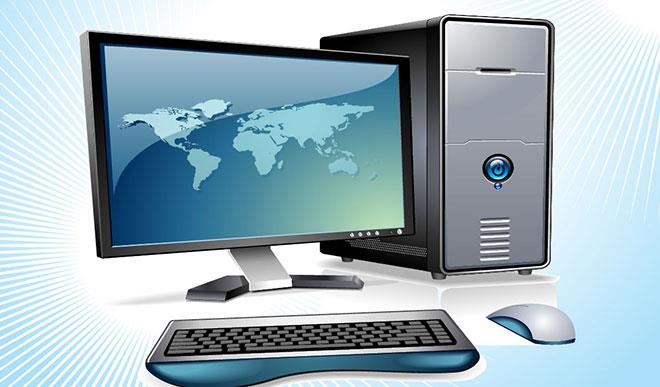TmaxOS: A new PC operating system on the horizon
If you have ever visited South Korea and the U.S., you’ll probably agree with me that the U.S. appears to fall behind South Korea, not only in Information and Communication Technology (ICT), but also in infrastructure – tunnels, airports, high-speed trains, and subways. Of course there are a few critical technology areas where the U.S. […]


If you have ever visited South Korea and the U.S., you’ll probably agree with me that the U.S. appears to fall behind South Korea, not only in Information and Communication Technology (ICT), but also in infrastructure – tunnels, airports, high-speed trains, and subways.
Of course there are a few critical technology areas where the U.S. is ahead of everyone else. Aeronautics and astronautics is certainly one of those areas, where South Korea and China, for example, are, respectively, probably 50 and 40 years behind the U.S. Of course, this has a direct implication for military superiority, an area in which the U.S. comfortably leads the world. If you are in doubt about the U.S. space superiority, just consider the number of manned moon landings – 6 for the U.S. and zero for everyone else!
The other area where the U.S. clearly trumps every other country, including South Korea, is software. It is safe to say that virtually 100 percent of all the operating systems driving the world’s computers have been developed in, or are currently owned by companies in, the U.S. In an April 2016 report by StartCounter, 88% of all PCs/laptops use Microsoft Windows, followed by Apple’s OS X (9.47%), Linux (1.4%), and Google Chrome (less than 1%). For mobile devices, according to International Data Corporation (IDC), it’s Android (84.7%), iOS (11.7%), Windows (2.5%), and BlackBerry (less than 1%).
However, a South Korean company with the name TmaxOS, a subsidiary of the South Korean company TmaxSoft, is not happy with the status quo and wants to change it. TmaxOS expressly wants to undermine the domination of computing by the West – with the American companies Microsoft, Oracle, Google, and Apple as the targets. The ambition actually sounds laughable, though I won’t laugh because I know it could be done!
Right off the back, I have a bias – and it is with the name of the company – TmaxSoft, and the subsidiary (or the OS) – TmaxOS, which I find a bit gawky. Vanity? Yes. Important? Probably. TmaxSoft is not only going after the PC operating system with TmaxOS, it has also developed an alternative to Microsoft Word, called ToWord, and an alternative to the existing browsers (Microsft Edge, Google Chrome, and Mozilla Firefox) called ToGate. All three programs, which were unveiled in Seoul, South Korea, last week, are based on the 43-year old Unix operating system, developed by the U.S. company AT&T. TmaxOS is compatible with applications, platforms, and devices that operate on MS Windows, Google Android, Apple iOS, and others. This feature will certainly grab the attention of the incumbents.
TmaxOS CEO, Park Hak-Rae, who blames the poor landscape of the software industry in Korea to the use of non-standard formats, is quite optimistic about his company’s future: “The company has developed TmaxOS, based on its expertise in the data base management system (DBMS) and middleware, a software connecting the OS and application programs, sectors accumulated from the competition with Oracle. With this, we will overcome various harmful effects from the monopoly of MS without fail. Since MS Windows is not a standardized format used in the information technology industry, various windows-based programs cannot be used on mobile devices and integrated cloud computing platforms. On the other hand, TmaxOS is based on the UNIX format, so it has greater openness and stability.” Mr. Park does not stop there: “The introduction of TmaxOS, which is a standardized OS, is the first step to bring about a new innovation in the platform area, which has been monopolized by global IT firms such as MS and Google. At first, no one thought that we could beat Oracle in the DBMS sector but we finally did it. Thus, we will put up a good show in the OS market led by MS and break into global markets.”
TmaxOS, who is aiming only for 10% of the PC operating system market by 2020, plans to release its OS for testing in October of this year, with a projected launch sometimes next year. Founded in 1997, TmaxSoft unveiled TmaxWindow operating system in July 2009; but the company ran out of cash and failed to commercialize the product.
I’ll take this company a bit seriously since there is a (Korean) local precedence. While the rest of the world uses MS Word for its document preparation needs, the MS-Word-look-alike product called HanWord, a component of Hancom Office, is the standard used by the government of Korea! Of course, Hancom is a concatenation of the first 3 letters of “Hanguk,” the Korean word for Korea, and the first 3 letters of the word “Company.” However, these products don’t yet have international appeal. With its operation in 11 countries, including Canada, China, the U.S., and UK, TmaxOS might just pull it off. However, the chances of being able to shake the incumbents are quite low, but not nil.
